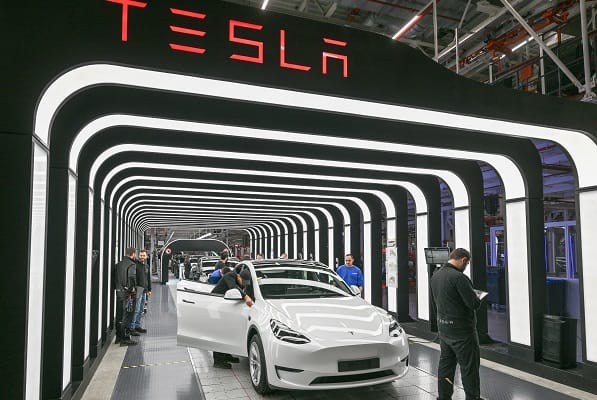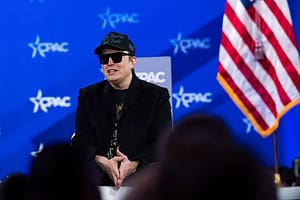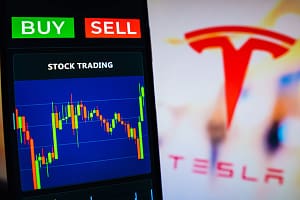At the peak of its post-US election surge, Tesla seemed untouchable. Investors had thrown their weight behind Elon Musk’s vision, sending the company’s market capitalisation soaring by an astonishing $733 billion since November.
Now, the fall is just as dramatic. A 54% collapse—erasing hundreds of billions in value—makes Tesla the worst-performing stock in the S&P 500 since the election.
The lesson? No company, no matter how grand its ambitions, is bigger than the credibility of its leader.
Musk has always been the gravity-defying CEO, his reputation built on promises of the extraordinary.
But when the belief in a leader falters, the market punishes not just the person but the entire enterprise they represent.
The Tesla brand, which once seemed synonymous with tech revolution, is now tangled in politics, social controversy, and an unmistakable loss of investor faith.
If the biggest risk to a company’s valuation is its own CEO, business leaders everywhere should take notice.
Tesla was never valued as a carmaker alone. Even at its pre-election valuation of $800 billion, it traded at a breathtaking 80 times expected 2025 earnings. Investors weren’t just betting on electric vehicles; they were buying into a vision of self-driving taxis, humanoid robots, and a future where Tesla ruled over mobility itself.
This was a company priced on dreams. But now that dreams are colliding with reality—shrinking European sales, Chinese production woes, protests at Tesla factories—Musk’s high-wire act is losing its audience.
Musk’s political entanglements, from his appointment as Trump’s efficiency tsar to his relentless engagement in online culture wars, have alienated customers and investors alike.
His recent claim that Tesla will one day be worth more than Apple, Microsoft, Nvidia, Amazon, and Alphabet combined—currently a $13 trillion goal—now sounds less like audacity and more like delusion.
Business leaders must ask themselves: Are they building companies that can withstand their own personal missteps, or are they creating institutions so deeply tied to their personas that when they stumble, the entire enterprise collapses?
There’s also the issue of reading the market—both financial and cultural. While Trump was showcasing his new Tesla at the White House, sacked federal workers just yards away were holding up “Don’t buy Tesla” placards.
Some Tesla owners have even posted videos of themselves returning their cars in protest. It’s a stark reminder that consumer sentiment matters, and when a CEO becomes a liability to their own brand, loyalty erodes quickly.
The notion that “all press is good press” is a dangerous myth in today’s marketplace. Consumers increasingly vote with their wallets, and Musk’s failure to gauge the shifting cultural tide is now costing Tesla billions.
But if Musk’s overreach is a cautionary tale, his underlying premise—that the future belongs to the bold—isn’t entirely wrong.
The problem is that credibility erodes when boldness veers into bluster. Bank of America recently doubled its estimates for global humanoid robot shipments by 2035, a nod to the fact that some of Musk’s big bets may eventually pay off. But in the short term, his habit of over-promising and under-delivering has put his company’s future at risk.
For business leaders watching this unravel, the takeaway is clear: Ambition must be paired with execution. The stock market is ruthless when promises aren’t met, and Tesla’s recent 15% plunge in a single day underscores just how quickly confidence can collapse. The difference between an inspirational vision and reckless hype is whether the numbers hold up. Right now, they don’t.
And that’s why Tesla’s crisis is Musk’s crisis. His greatest strength—his ability to inspire belief—has become his greatest weakness. The market no longer trusts his projections, his customers are growing wary, and even Tesla’s internal culture appears increasingly strained.
Musk once sold investors a dream that Tesla would transform the world. Now, the market is calling that dream into question.
A company’s greatest asset can also be its greatest risk, and the line between genius and hubris is far thinner than it appears from the top.





Leave a Comment